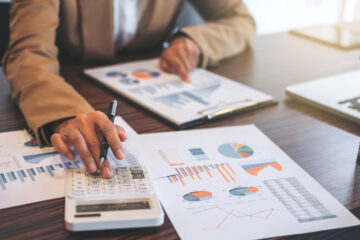The United Arab Emirates (UAE) has emerged as a beacon of modernity and innovation. Amidst its towering skyscrapers and groundbreaking architectural marvels, there is a growing emphasis on sustainability. This shift towards green building and sustainable procurement practices is a nod to environmental stewardship and a strategic move to ensure long-term viability and resilience in the real estate sector. In this blog, we delve into the essence of sustainable procurement practices in the UAE, highlighting the importance of integrating sustainability into the core of real estate development and management.
Understanding Sustainable Procurement
Sustainable procurement in real estate refers to selecting materials and services and working with a minimized environmental footprint while also considering social and economic factors. It encompasses everything from sourcing raw materials to contractors’ and suppliers’ employment practices. The goal is to achieve a balance between meeting immediate needs and ensuring the well-being of future generations.
The UAE’s Commitment to Sustainability
The UAE has positioned itself as a leader in sustainability, with ambitious goals outlined in its Vision 2021 and the UAE Green Agenda 2030. These national strategies emphasize the importance of sustainability across all sectors, including real estate. The country’s commitment is further evidenced by its hosting of the upcoming COP 28, highlighting its role on the global stage in combating climate change.
The UAE government has been at the forefront of integrating sustainability into business practices. Through a series of policies, regulations, and incentives, it encourages businesses to embrace eco-friendly operations. Here’s a closer look at some key initiatives:
- UAE Green Building Council (GBC): Founded in 2007, this non-profit organization champions sustainable building standards and practices. One of its significant contributions is the creation of the Estidama Rating System, a framework designed to assess and improve the sustainability of buildings.
- Dubai Sustainable Tourism Initiative: Initiated in 2010, this program seeks to embed sustainability into the tourism industry. It focuses on several critical areas, including reducing waste, conserving water, and promoting sustainable transportation options.
- Dubai Integrated Energy Strategy 2030: This ambitious strategy targets a 30% reduction in energy consumption across Dubai by 2030, alongside increasing the contribution of clean energy to 25% of the city’s total energy mix.
Why Sustainable Procurement Matters in UAE Real Estate
Like many other regions, the UAE faces the challenge of balancing its booming construction sector with environmental responsibility. According to a 2021 report by Knight Frank, the UAE construction sector is expected to grow by 4.2% annually until 2025. While positive for the economy, this growth can lead to increased resource consumption and environmental impact.
Sustainable procurement practices offer a solution. Real estate developers can significantly reduce their carbon footprint and resource utilization by consciously sourcing materials, products, and services that prioritize environmental and social responsibility. This benefits the environment and aligns with the UAE’s ambitious sustainability goals outlined in its Vision 2021 and the Dubai 10X initiative.
Key Sustainable Procurement Practices for UAE Real Estate
Here are some key sustainable procurement practices that UAE real estate developers can implement:
- Material Selection: Prioritize locally sourced, recycled, and rapidly renewable materials like bamboo, recycled steel, and sustainably harvested wood. This reduces transportation emissions and minimizes environmental impact.
- Energy Efficiency: Opt for energy-efficient appliances, lighting systems, and building materials with high insulation properties. This lowers operational costs and reduces the building’s long-term environmental footprint.
- Water Conservation: Implement water-saving fixtures, rainwater harvesting systems, and drought-resistant landscaping. This conserves precious water resources, especially crucial in the arid region of the UAE.
- Supplier Engagement: Collaborate with suppliers who share your commitment to sustainability. Conduct thorough due diligence to ensure their practices align with your environmental and social responsibility goals.
- Life Cycle Assessment: Consider the entire life cycle of a product when making procurement decisions, from its extraction and production to its use and disposal. This ensures responsible resource management throughout the product’s lifespan.
Challenges and Opportunities
While the UAE is progressing in implementing sustainable procurement practices, certain challenges remain. These include:
- Higher initial costs: Sustainable materials and technologies may sometimes have a higher initial price than conventional options.
- Limited availability of sustainable options: The local market for sustainable materials and technologies might need to be expanded, requiring careful research and sourcing strategies.
Despite these challenges, numerous opportunities exist:
- Government initiatives: The UAE government actively supports sustainable practices, including the Dubai Green Building Regulations and the Estidama Pearl Building Rating System. These initiatives incentivize developers and investors to adopt sustainable construction methods and materials.
- Technological advancements: Advancements in technology are constantly producing new and innovative sustainable building materials and technologies, making them more cost-effective and widely available.
The Way Forward
A collaborative effort is required for the UAE’s real estate sector to thrive sustainably. Developers, government entities, financial institutions, and consumers must work together to promote sustainable practices. By doing so, the UAE can continue to lead by example, demonstrating that development and sustainability can go hand in hand.
Conclusion
Sustainable procurement in the UAE’s real estate sector is more than a trend; ensuring a livable, prosperous future is necessary. The real estate industry can contribute significantly to the nation’s environmental goals, economic resilience, and social well-being by embracing sustainable practices. The journey towards sustainability is ongoing, but with the right strategies and commitment, the UAE’s real estate sector can achieve remarkable success, setting a global benchmark for sustainability in urban development.


